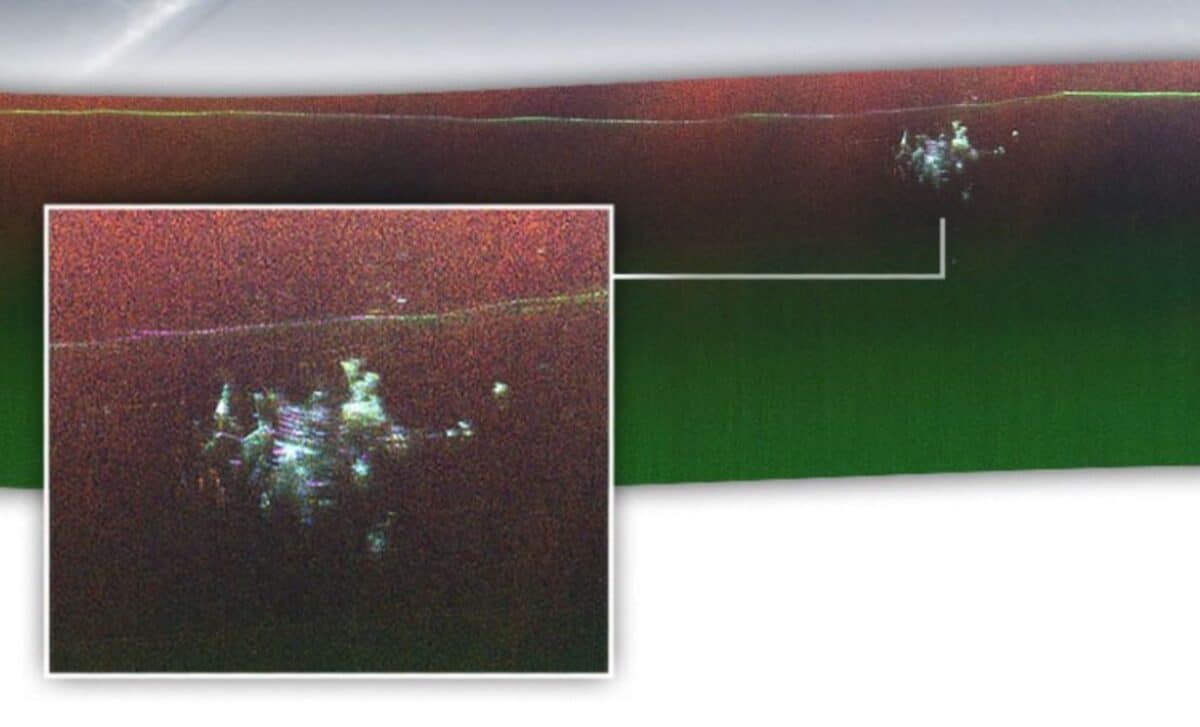U.S. Military Base Under Greenland's Ice: History And Controversy

Table of Contents
Historical Context: Early Cold War Activities in Greenland
Greenland's geographical position, a vast island bridging the gap between North America and Europe, has always held strategic importance. Its proximity to the Soviet Union during the Cold War made it a crucial location for monitoring and defense.
The Significance of Greenland's Geographic Location during the Cold War
- Early Warning System: Greenland's northern location offered an unparalleled vantage point for detecting potential Soviet missile launches, making it vital for establishing an early warning system.
- Proximity to the Soviet Union: Its geographical proximity to the Soviet Union provided the United States with a strategic advantage for monitoring Soviet military activities.
- Air and Communication Bases: The U.S. established several air bases and communication facilities across Greenland during the Cold War, significantly enhancing its surveillance capabilities.
Key dates include the establishment of the Thule Air Base in 1951, marking a significant increase in the US military presence in Greenland.
Project Iceworm and its Controversial Legacy
Project Iceworm, a top-secret Cold War initiative, aimed to build a network of nuclear missile bases beneath the Greenland ice sheet. The project, however, faced insurmountable technical challenges, primarily related to the movement of the ice and the enormous logistical hurdles involved in constructing and maintaining such a vast underground complex. The project was ultimately abandoned in 1966, leaving behind a legacy of environmental concerns and unanswered questions about the extent of its impact on the fragile Arctic ecosystem. Images and maps from the era reveal the ambitious scale of the undertaking, emphasizing the technological limitations of the time.
Contemporary Concerns: Modern Military Presence and its Implications
While Project Iceworm failed, the U.S. military presence in Greenland persists, most notably through the Thule Air Base.
The Thule Air Base and its Role in Modern Defense Strategies
Thule Air Base, located in northwest Greenland, remains a crucial component of U.S. and NATO defense strategies. It plays a vital role in:
- Missile Defense: The base contributes significantly to North American Aerospace Defense Command (NORAD)'s missile defense systems.
- Space Surveillance: It houses advanced radar systems that track satellites and other objects in space.
- Early Warning System: The base continues to serve as an early warning system, monitoring potential threats from the Arctic region.
Recent upgrades and expansions to Thule Air Base have fueled further debate regarding its environmental impact and the long-term consequences of its operation within a sensitive Arctic ecosystem.
Political and Geopolitical Ramifications of a U.S. Military Presence in Greenland
The continued presence of a significant U.S. military base in Greenland has significant political and geopolitical implications:
- U.S.-Greenland-Denmark Relations: The relationship between the United States, Greenland, and Denmark is complex and constantly evolving, particularly as Greenland seeks greater autonomy.
- Greenland's Growing Autonomy: Greenland's increasing self-governance raises questions about the future of military agreements and the extent of Greenland's control over its own territory.
- Stakeholder Perspectives: Differing viewpoints exist among the Greenlandic population, the Danish government, and the U.S. government regarding the base's role and implications.
Debunking Myths and Addressing Misconceptions about the U.S. Military Base Under Greenland's Ice
Numerous conspiracy theories surround the U.S. military presence in Greenland, often exaggerating the scale and secrecy of operations.
Separating Fact from Fiction: Addressing Popular Conspiracy Theories
Many claims of vast underground bases are unsubstantiated. Credible sources and evidence suggest the focus should be on the above-ground facilities and their known operations, rather than unproven subterranean structures.
The Importance of Transparency and Public Discourse
Open communication and transparency regarding military activities in Greenland are crucial. Responsible journalism and balanced reporting are vital to counter misinformation and foster informed public discussion. Improved access to information and open dialogue would enhance public trust and understanding.
Conclusion: The Future of U.S. Military Presence Under Greenland's Ice – A Call for Further Investigation
This article has explored the historical context, contemporary concerns, and persistent myths surrounding the U.S. military presence in Greenland. While the existence of a massive, hidden underground base remains unsubstantiated, the strategic importance of Greenland and the continued presence of Thule Air Base are undeniable facts. However, many questions remain unanswered about the precise nature and extent of current and future US military activities in the region.
Further research is necessary to fully understand the long-term implications of the U.S. military presence in Greenland, focusing on environmental impact, geopolitical relationships, and the balance between national security and Greenland's self-determination. We encourage readers to explore this topic further by consulting reputable sources, watching documentaries focused on Greenland and US military operations, and contacting organizations like the Danish Ministry of Foreign Affairs or the Greenlandic government for more information on the U.S. military presence under Greenland's ice. Understanding the history and complexities surrounding this topic is crucial for informed discussion and responsible policy-making regarding this strategically important Arctic region.

Featured Posts
-
 Padres Announce 2025 Regular Season Tv And Radio Broadcast Details
May 16, 2025
Padres Announce 2025 Regular Season Tv And Radio Broadcast Details
May 16, 2025 -
 Ohio City Apartment Shooting Leaves One Injured
May 16, 2025
Ohio City Apartment Shooting Leaves One Injured
May 16, 2025 -
 Mays Ge Force Now Games Include Doom The Dark Ages And Blades Of Fire
May 16, 2025
Mays Ge Force Now Games Include Doom The Dark Ages And Blades Of Fire
May 16, 2025 -
 Analyzing The Knicks Performance The Impact Of Jalen Brunsons Injury
May 16, 2025
Analyzing The Knicks Performance The Impact Of Jalen Brunsons Injury
May 16, 2025 -
 This Obscure App A Potential Disruptor To Metas Empire
May 16, 2025
This Obscure App A Potential Disruptor To Metas Empire
May 16, 2025
